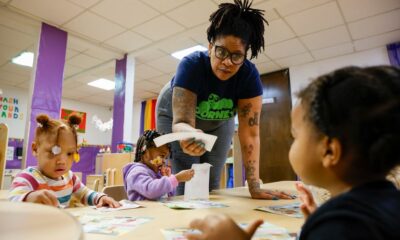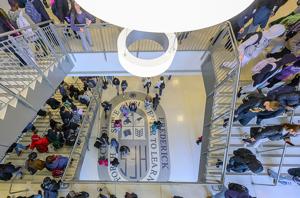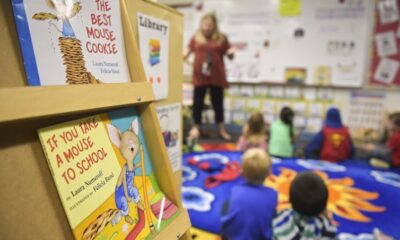Education
Tailored Learning: Alternatives for Gifted Children Explored

Parents seeking to meet their child’s gifted learning needs may find that traditional full-time gifted programs do not always provide the optimal solution. Recent discussions among educators and parenting experts highlight the potential of guided project-based learning as a viable alternative.
Understanding Gifted Learning Needs
Gifted learning encompasses a range of educational strategies designed to nurture children who demonstrate exceptional abilities or talents in specific areas. While many schools offer dedicated programs for these students, the effectiveness of such programs can vary significantly. According to a report by the National Association for Gifted Children, over 20% of students identified as gifted do not thrive in conventional educational environments.
Project-based learning (PBL) emerges as a promising alternative, allowing children to explore their interests in depth while developing critical thinking and problem-solving skills. This approach emphasizes hands-on learning through real-world projects, fostering a sense of ownership over their education.
The Benefits of Project-Based Learning
Educators advocate for project-based learning due to its adaptability and engagement factor. PBL encourages collaboration, creativity, and the application of knowledge in practical contexts. For instance, children can work on projects that align with their personal interests, whether it be in science, technology, arts, or social studies.
In a recent study conducted by the International Society for Technology in Education, 85% of students reported increased motivation and enthusiasm when participating in project-based learning activities. This hands-on approach not only meets the needs of gifted learners but also helps in developing skills that are critical in today’s workforce.
Parents play a crucial role in facilitating this type of learning. By working closely with educators, they can identify opportunities for their children to engage in PBL both at school and at home. Creating a supportive environment that encourages exploration and inquiry can significantly enhance a child’s educational experience.
As awareness grows about the limitations of traditional gifted programs, more schools are beginning to implement project-based learning frameworks. This shift indicates a broader recognition of the diverse needs of gifted learners and the importance of tailoring education to fit those needs.
In summary, while full-time gifted programs remain an option, guided project-based learning presents a flexible and effective alternative. By focusing on real-world applications and fostering individual interests, both parents and educators can help gifted children reach their full potential.
-

 Science2 weeks ago
Science2 weeks agoNostradamus’ 2026 Predictions: Star Death and Dark Events Loom
-

 Technology1 month ago
Technology1 month agoOpenAI to Implement Age Verification for ChatGPT by December 2025
-

 Technology6 months ago
Technology6 months agoDiscover the Top 10 Calorie Counting Apps of 2025
-

 Health4 months ago
Health4 months agoBella Hadid Shares Health Update After Treatment for Lyme Disease
-

 Health4 months ago
Health4 months agoAnalysts Project Stronger Growth for Apple’s iPhone 17 Lineup
-

 Health4 months ago
Health4 months agoErin Bates Shares Recovery Update Following Sepsis Complications
-

 Technology4 months ago
Technology4 months agoElectric Moto Influencer Surronster Arrested in Tijuana
-

 Technology5 months ago
Technology5 months agoDiscover How to Reverse Image Search Using ChatGPT Effortlessly
-

 Technology6 months ago
Technology6 months agoMeta Initiates $60B AI Data Center Expansion, Starting in Ohio
-

 Technology6 months ago
Technology6 months agoRecovering a Suspended TikTok Account: A Step-by-Step Guide
-

 Education4 months ago
Education4 months agoHarvard Secures Court Victory Over Federal Funding Cuts
-

 Technology2 months ago
Technology2 months agoDiscover 2025’s Top GPUs for Exceptional 4K Gaming Performance





















